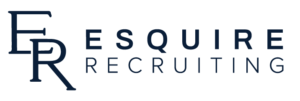Phone vs In-Person Interviews: The Difference
You’ve received the call and set up a time for your upcoming phone interview. Now what? There are undoubtedly different mechanisms used to prepare for these type of interviews. As recruiters who prepare our candidates for these types of interviews on a daily basis, we’re here to point out the strategies we find most beneficial for you!
- Always, always be ready and available! Remember, you do not have the benefit of face-to-face interaction. For that reason, if you are unprepared come the time for your interview, it is unlikely that you will be able to justify this inconvenience in your interviewer’s time. Write your scheduled time down on post-its, set reminders, and allow yourself at least 15 minutes prior to the scheduled time to wait for the call.
- Set up Your Environment: Eliminate all potential background noise, whether this is the footsteps of others walking around you, keyboard clicks (take notes on paper!), children, or any other distraction that your interviewer will be able to hear through the phone. This will help you to understand the questions and maintain focus, while also asserting the engagement of your interviewer.
- Your Greatest Advantage, Note-taking! Arguably the greatest benefit of a phone interview is the fact that your interviewer will not be able to see your face or actions. Take advantage of this opportunity! You should, at the very least, have a sheet of potential questions prepared, as well as a note sheet about company information, values, goals, job responsibilities, and anything else relative to your position. Your interviewer most likely expects that you have this on hand, and for that reason will expect you to be aware and prepared.
- Extra Tip: This also includes having a copy of your resume on hand!

- Extra Tip: This also includes having a copy of your resume on hand!
- Let Them Lead the Way: A specific challenge regarding phone calls is the tendency to intervene, or begin answering a question out of eagerness. However, be sure to allow your interviewer to lead the conversations and finish their sentences before you begin speaking. If you are confident that they are ready for your answer, begin talking slowly and with extra enunciation.
- Tone: Because you are not afforded the ability to convey enthusiasm and excitement through facial expressions and body language, it is vital that you elevate your tone of voice and showcase your passion through voice. You may even catch yourself smiling while speaking…that’s a good thing!
- Practice Makes Perfect! We encourage you to conduct a “mock” phone interview with a friend, family member, or even through a voicemail or voice memo. This is a great way to evaluate your tone, use of “um,” “like,” or other filler words that cause you to sound nervous or shaky, and implement improvements before the real deal!
- Remember…a phone interview should be treated the same way as one in-person. Thank your interviewer, prepare questions, introduce yourself and keep a running tab of your key information (strengths, weaknesses, accomplishments, etc.), talk slowly and confidently, and make sure to ask for a moment if you need one!
The most important component of an interview is achieving a positive first impression! Following these strategies will also you to do so in no time.
Searching for a new position? Check out our open jobs list!
Looking for more? Read our article about selling yourself and first impressions!



